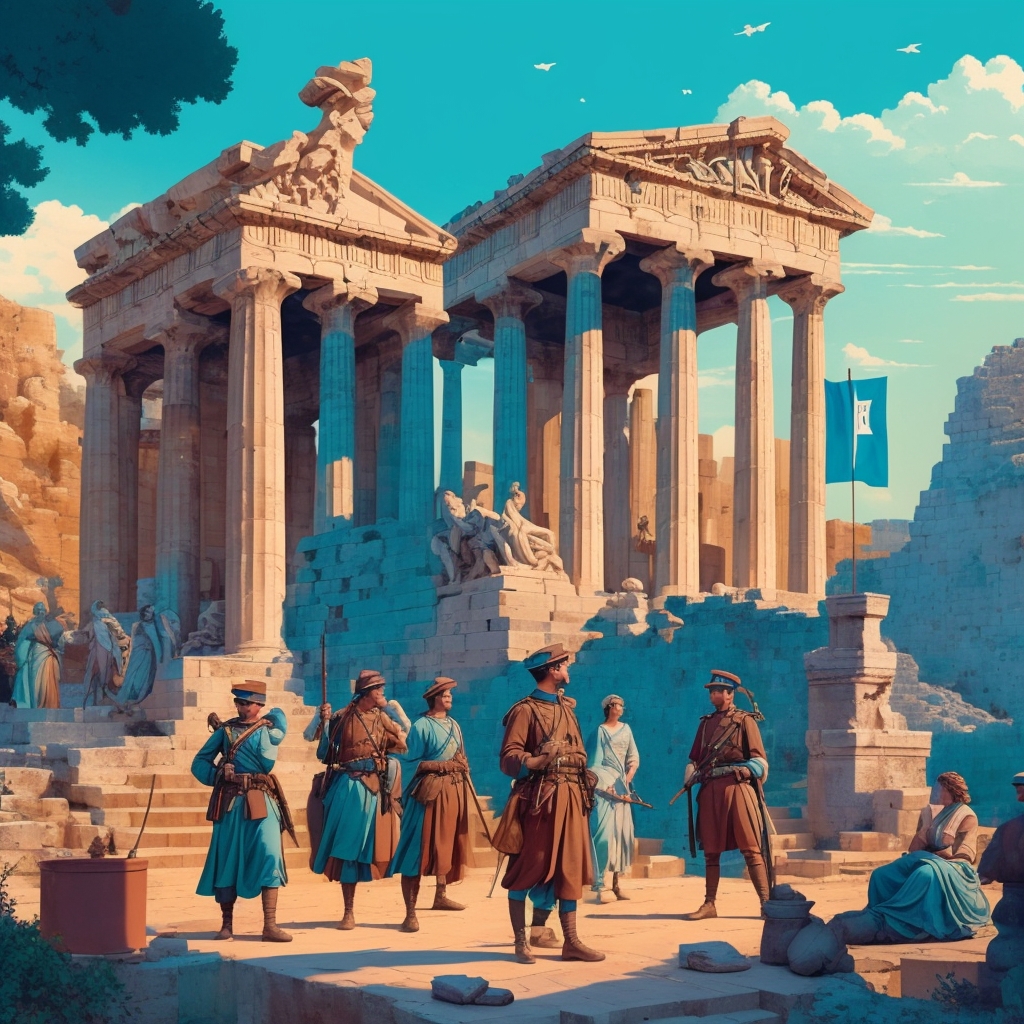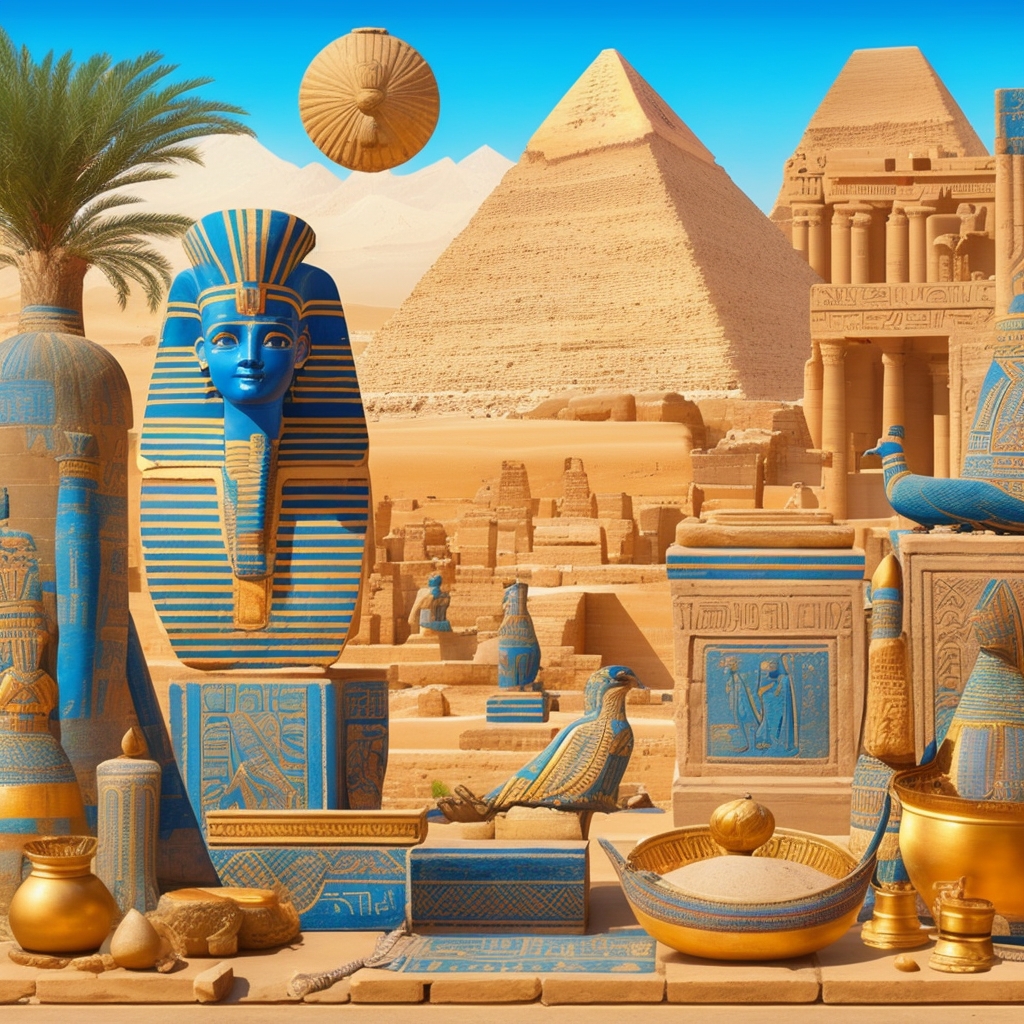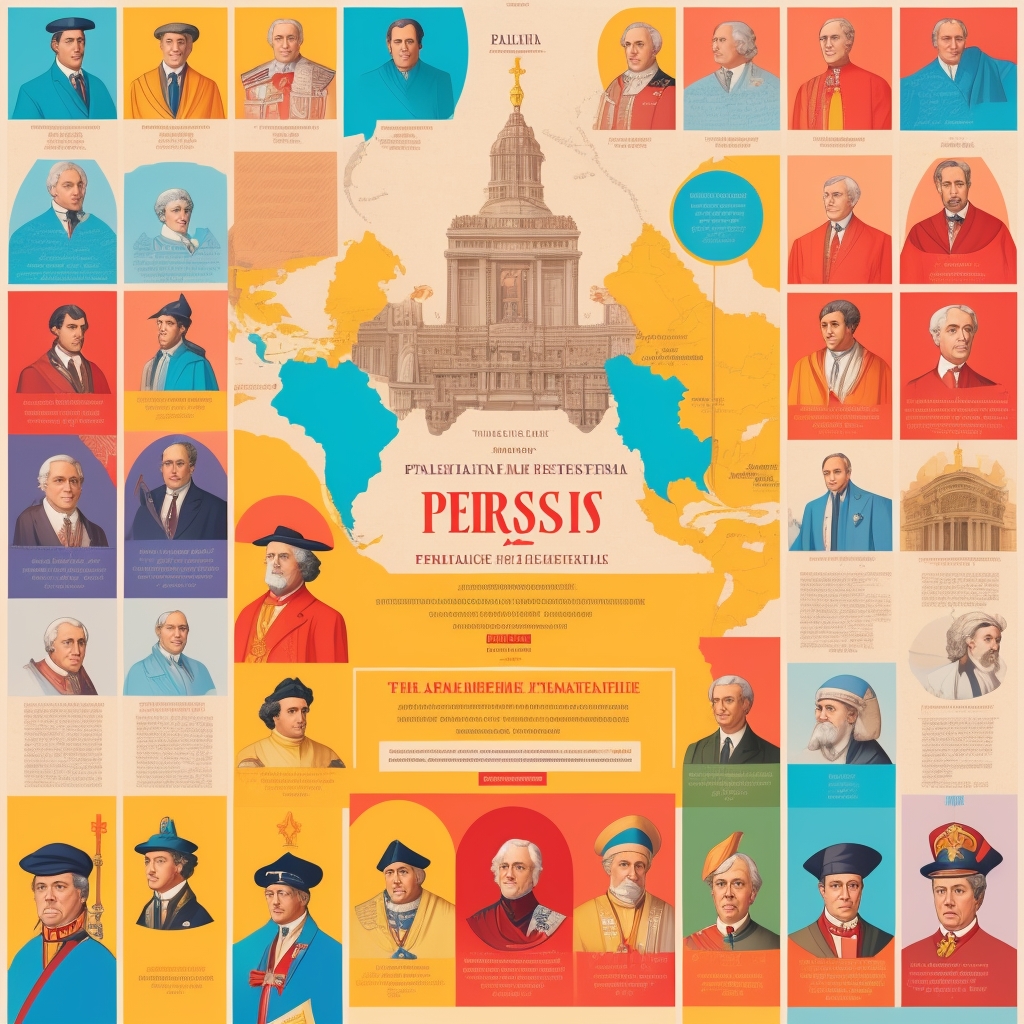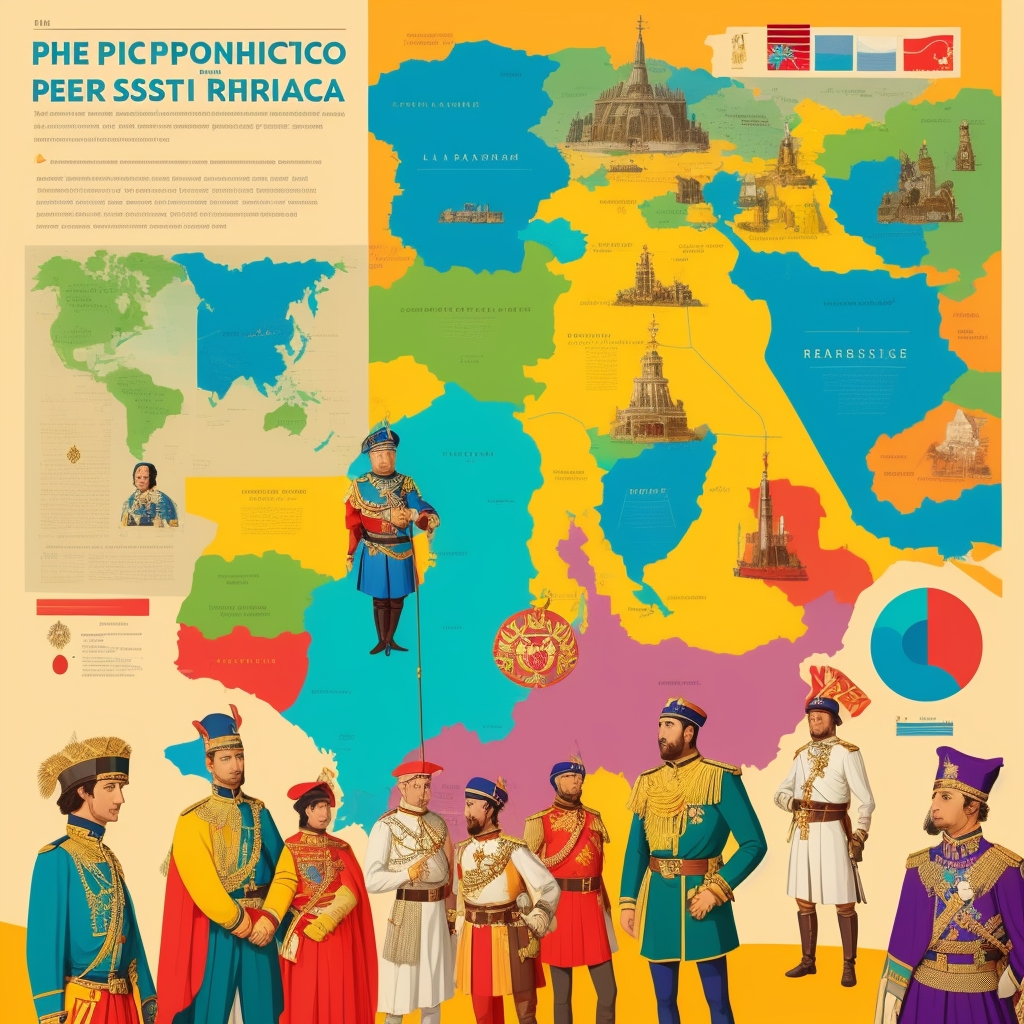The Persian Wars, fought between 499 and 449 BCE, marked a truly pivotal moment in the history of Ancient Greece. These conflicts, which pitted the Greek city-states against the mighty Persian Empire, shaped not only the political and military future of Greece but also, quite profoundly, laid cultural and ideological foundations that continue to resonate in the Western world even today. The reverberations of these ancient clashes can still be felt in modern democratic institutions, military strategy, and the very concept of Western civilization itself.
In this article, we’ll explore the main causes and consequences of the Persian Wars and their deep, long-lasting impact on the ancient world, examining how these conflicts fundamentally altered the trajectory of human history.
Unpacking the Spark: What Ignited These Monumental Wars?
The Achaemenid Ambition: Persia’s Relentless Drive Westward
One of the primary drivers behind these wars was the sheer imperial ambition of the Achaemenid Empire, first under Darius I and later his son, Xerxes I. At its zenith, Persia wasn’t just content; it actively sought to secure and expand its western frontiers by incorporating the Greek cities of Asia Minor. What’s particularly fascinating is that for Persia, controlling these territories wasn’t just about land acquisition; it was about dominating crucial trade routes that connected Europe to Asia and establishing vital buffer zones against potential rebellion. The Persian Empire, stretching from India to Egypt, viewed the Greek territories as the natural completion of their western expansion—a strategic imperative that would secure their Mediterranean interests and demonstrate their absolute dominance over the known world.
The Persian administrative system, known as the satrap system, had proven remarkably effective in governing diverse populations across their vast empire. However, the fiercely independent Greek city-states presented unique challenges that Persian bureaucracy struggled to accommodate. Unlike other conquered peoples who often welcomed Persian rule for its stability and tolerance, the Greeks possessed a deeply ingrained sense of autonomy and democratic participation that clashed fundamentally with Persia’s autocratic governance. It was a cultural incompatibility that, frankly, spelled trouble from the start.
The Ionian Spark: A Rebellion Ignites a Continent (499–494 BCE)
Here’s the thing though: Persian ambition inevitably met Greek resistance. The Ionian Revolt serves as the immediate trigger for the larger conflict. Greek cities in Asia Minor, like Miletus, Ephesus, and Chios, grew increasingly frustrated under Persian rule and revolted under the leadership of Aristagoras of Miletus. These cities had once enjoyed considerable autonomy and prosperity, but Persian taxation and the installation of puppet tyrants had gradually eroded their traditional freedoms. It was a boiling point waiting to happen.
Crucially, Athens and Eretria stepped in, offering military support to the rebels. Athens contributed twenty ships and 2,000 soldiers, while Eretria provided five ships—a seemingly modest contribution that would have enormous consequences. The rebels achieved some initial success, including the dramatic burning of Sardis, the regional Persian capital, in 498 BCE. However, while the revolt itself was ultimately crushed by 494 BCE with the decisive Persian naval victory at the Battle of Lade, this intervention deeply angered Darius I. He saw it as a direct affront, an unforgivable act of interference, and he vowed to punish Athens and Eretria for their audacity.
An Unforgivable Act: Athenian Defiance and Persian Retribution
The involvement of Athens and Eretria wasn’t just seen as interference; it was perceived by the Persians as a deliberate act of aggression, a challenge to their very authority and the divine mandate of their king. According to Herodotus, Darius was so incensed that he ordered a servant to remind him three times daily: “Master, remember the Athenians.” This direct support of rebellion truly set the stage, provoking the first Persian invasions of mainland Greece, beginning with the campaign that culminated in the iconic Battle of Marathon. It was a clear message: defy Persia, and face the consequences.
The Persian concept of kingship, rooted in Zoroastrian beliefs about divine authority, made any challenge to Persian rule not merely political but fundamentally religious. The Greek support for the Ionian rebels was thus seen as an act of impiety against the cosmic order that the Persian king was meant to uphold. From their perspective, this wasn’t just a border skirmish; it was a cosmic imbalance that needed correcting.
The Aftermath: Enduring Consequences of the Persian Wars
Ascendant Athens: From City-State to Naval Powerhouse
The Greek victories — particularly the stunning successes at Marathon (490 BCE), Salamis (480 BCE), and Plataea (479 BCE) — profoundly enhanced Athens’ reputation throughout the Greek world and beyond. It truly emerged as the defender of Greek freedom, transitioning from a prominent city-state to an undeniable naval superpower and a political leader among its peers. This transformation was nothing short of revolutionary, fundamentally altering the balance of power in the eastern Mediterranean.
- Marathon, a surprisingly decisive land battle where 11,000 Athenians and 1,000 Plataeans defeated a Persian force of approximately 25,000, cemented Athens’ formidable land-based military capacity and proved that Persian forces were not invincible. It was a psychological blow that reverberated across the Aegean.
- Salamis, a masterclass in naval strategy orchestrated by the brilliant Themistocles, showcased the undeniable dominance of the Athenian fleet and its innovative approach to sea warfare, effectively ending Persian naval supremacy in the Aegean. What’s interesting is how quickly they adapted and mastered naval power.
- Plataea, the final major land battle, demonstrated Greek unity as Spartan, Athenian, and allied forces combined to decisively defeat the remaining Persian army under Mardonius.
The psychological impact of these victories cannot be overstated. For the first time, Greeks had proven that the seemingly unstoppable Persian war machine could be defeated through superior tactics, unity, and sheer determination. This was a paradigm shift for the ancient world.
Forging an Empire: The Birth of the Delian League
In response to what was perceived as an ongoing Persian threat, Athens took the lead in creating the Delian League in 478 BCE, a military alliance of Greek states initially headquartered on the sacred island of Delos. While initially established as a defensive pact with the noble goal of liberating Greek cities still under Persian control, Athens, with its newfound naval supremacy, gradually transformed it into a maritime empire. They effectively controlled the Aegean, not just through naval dominance but also through the collection of tribute from member states—a system that generated enormous wealth for Athens.
It’s fascinating how a defensive alliance could evolve into such a formidable power structure. The League eventually encompassed over 200 city-states, with Athens collecting approximately 460 talents of silver annually at its peak—an enormous sum that funded the construction of the Parthenon and other monuments of the Athenian Golden Age. This transformation from liberator to imperial power would eventually create the very tensions that led to the devastating Peloponnesian War. A classic example, if you ask me, of good intentions paving the way for future conflict.
Shifting Tides: The Decline of Persian Influence
Persia’s failure to conquer Greece wasn’t just a setback; it signaled the very limits of its seemingly unstoppable expansion and marked the beginning of a gradual Persian retreat from European affairs. These defeats, particularly the naval ones, unexpectedly inspired other regions within the Persian Empire to challenge Persian authority. While Persia remained a potent force controlling vast territories from Central Asia to Egypt, it lost strategic control over the Aegean, a critical maritime highway that connected the eastern and western portions of the Mediterranean world.
This undoubtedly reshaped the delicate balance of power across the ancient world, creating space for Greek cultural and political influence to spread throughout the Mediterranean. The Persian Empire, while still formidable, would never again pose the same existential threat to Greek independence, allowing for the flourishing of Greek philosophy, art, and democratic institutions. It’s a testament to how even a seemingly small defeat can have colossal long-term ripple effects.
Iconic Clashes: Concrete Examples and Enduring Lessons
The Battle of Salamis: A Masterclass in Naval Strategy
This naval engagement, fought in the narrow straits between the island of Salamis and the Attic coast in September 480 BCE, is a prime example of Greek unity and strategic brilliance overcoming vastly superior numbers. A coalition of Greek city-states, shrewdly led by Themistocles of Athens, lured the massive Persian fleet of over 1,000 ships into a confined space where their numerical advantage became a liability. Through clever positioning, intimate knowledge of local waters, and impeccable timing, the Greeks achieved a decisive victory with their smaller but more maneuverable fleet of approximately 380 ships.
The battle demonstrated several key principles that remain relevant in military strategy today: the importance of choosing favorable terrain, the value of intelligence and deception, and the power of unified command. Themistocles’ famous ruse—sending a false message to Xerxes claiming the Greek fleet was preparing to flee—drew the Persians into the trap. It’s a lesson that still resonates in military academies today, illustrating how superior strategy and local knowledge can overcome seemingly insurmountable odds.
The Battle of Thermopylae: The Power of Sacrifice
Though technically a tactical defeat for the Greeks, Thermopylae transcended its outcome to become a powerful, enduring symbol of resistance against tyranny. King Leonidas and his legendary 300 Spartans (alongside approximately 7,000 brave allies from other Greek states, including Thespians and Thebans) managed to delay the massive Persian advance for three crucial days in August 480 BCE, buying invaluable time for the rest of Greece to mobilize and prepare their defenses.
The battle, frustratingly close for the Persians despite their overwhelming numerical superiority, showcased the immense value of strategic terrain, unwavering discipline, and the ultimate sacrifice in the face of tyranny. The narrow pass at Thermopylae negated the Persian advantage in numbers, forcing them to fight on Greek terms. Even after the position was betrayed by Ephialtes, a local Greek who showed the Persians a mountain path around the pass, the Spartans’ final stand became legendary, inspiring Greek resistance throughout the remaining campaigns. It’s a story that continues to captivate and motivate.
The Battle of Marathon: David Defeats Goliath
The Battle of Marathon in 490 BCE deserves special attention as the first major Greek victory over Persian forces. Under the brilliant tactical leadership of Miltiades, the Athenians employed an innovative battle formation, strengthening their flanks while deliberately weakening their center. This allowed them to envelop the Persian forces in a classic double envelopment maneuver. The victory was so unexpected and complete that the Athenians lost only 192 men while inflicting thousands of casualties on the Persians.
The famous run of Pheidippides (or Philippides according to some sources) from Marathon to Athens to announce the victory gave birth to the modern marathon race, ensuring that this ancient triumph continues to be commemorated in athletic competitions worldwide, including the modern Olympic Games revived in the 19th century. Talk about an enduring legacy!
Key Insights and Strategic Principles: Lessons for Today
| Principle | Historical Insight | Modern Relevance |
|---|---|---|
| Unity in Crisis | Despite deep-seated rivalries, city-states setting aside differences defeated a vastly superior foe. | International coalitions remain crucial for addressing global threats, whether military, economic, or environmental. |
| Strategic Thinking | Salamis unequivocally proved that sophisticated tactics are more potent than sheer numbers. | Modern asymmetric warfare principles trace back to these ancient innovations, highlighting the importance of outthinking, not just out-muscling, opponents. |
| Measured Diplomacy | Athenian support for Ionia, while well-intentioned, sparked a massive war — highlighting the critical importance of strategic foresight. | Contemporary foreign policy decisions, especially in interconnected global affairs, require careful consideration of long-term consequences and potential escalations. |
| Naval Power & Hegemony | A strong, well-organized fleet undeniably positioned Athens as the dominant Mediterranean power. | Naval supremacy remains crucial for global powers in the 21st century, influencing trade routes, power projection, and geopolitical leverage. |
| Myth-Making & Identity | The heroic narratives born from these wars profoundly reinforced Greek national pride and cultural legacy. | National narratives and shared historical experiences continue to shape modern political identity and unity, often serving as powerful rallying points. |
| Technological Innovation | Greek innovations in ship design (the trireme) and battle tactics proved decisive against traditional Persian methods. | Technological advancement remains a key factor in military, economic, and even cultural competition, constantly reshaping the global landscape. |
Your Burning Questions Answered: FAQ
What were the major battles of the Persian Wars?
The most significant engagements included:
- The Battle of Marathon (490 BCE) - The first major Greek victory, proving Persian vulnerability and boosting Greek morale.
- The Battle of Thermopylae (480 BCE) - A heroic Spartan last stand that inspired Greek resistance and bought crucial time.
- The Battle of Artemisium (480 BCE) - A concurrent naval engagement that tested Greek naval capabilities and served as a precursor to Salamis.
- The Battle of Salamis (480 BCE) - The decisive naval victory that effectively ended Persian naval supremacy in the Aegean.
- The Battle of Plataea (479 BCE) - The final major land battle that expelled Persian forces from mainland Greece.
- The Battle of Mycale (479 BCE) - A naval victory that immediately followed Plataea, liberating Ionian Greek cities.
Why did the Persians ultimately fail to conquer Greece?
Persia’s failure was multifaceted and incredibly instructive. It was due to the fierce and tenacious Greek resistance, their effective use of challenging terrain that negated Persian numerical advantages, brilliant strategic planning (especially at sea under leaders like Themistocles), and, arguably, Persian overreach and logistical challenges in maintaining such extended supply lines. The naval defeats, particularly the devastating loss at Salamis, were absolutely critical in turning the tide. Additionally, the Persian reliance on conscripted troops from various subject peoples proved less effective than the highly motivated Greek citizen-soldiers fighting for their homeland and freedom. It’s a classic case study in the power of motivation and local knowledge.
What pivotal role did Athens play in these conflicts?
Athens truly led the resistance, showcasing its military prowess both on land at Marathon and, even more significantly, at sea during the decisive Battle of Salamis. The Athenian navy, built with silver from the Laurium mines and championed by Themistocles, became the backbone of Greek naval power. Athens later formed and dominated the Delian League, asserting its leadership and shaping the regional political landscape for decades. The city’s democratic institutions and cultural achievements during this period established it as the intellectual and artistic center of the Greek world. Honestly, it’s hard to imagine the Greek victory without Athens’ audacious leadership.
How did the wars profoundly shape Greek culture?
The stunning victory over Persia profoundly boosted confidence in Greek identity, directly fueling Athens’ subsequent Golden Age. This was an unparalleled flourishing era of philosophy (with figures like Socrates, Plato, and Aristotle), drama (Aeschylus, Sophocles, and Euripides), architecture (the Parthenon and other monuments of the Acropolis), and the revolutionary concept of democracy, whose foundational principles continue to influence governance globally in 2025. The wars also established the concept of Panhellenism—a shared Greek identity that transcended individual city-state loyalties, laying the groundwork for a more unified cultural consciousness.
What were the enduring long-term effects of the Persian Wars?
The long-term effects were immense and continue to influence world history:
- The dramatic rise of Athens and the formation of its maritime empire, which dominated the Aegean for decades.
- The seeds of the devastating Peloponnesian War between Athens and Sparta were sown due to the shift in power dynamics and Athenian imperial ambitions.
- A significant weakening of Persian influence in the West, allowing Greek culture to spread throughout the Mediterranean.
- An enduring legacy in Western political thought, particularly regarding concepts of freedom, democracy, and resistance against imperial power.
- The establishment of historical writing as a discipline through Herodotus, who meticulously documented these events.
- The creation of lasting cultural narratives about East versus West that continue to influence geopolitical thinking, even in modern discourse.
How did the Persian Wars influence military tactics and strategy?
The Persian Wars introduced several revolutionary military concepts that influenced warfare for centuries. The Greek phalanx formation proved superior to Persian tactics, while naval innovations like the trireme and ramming tactics revolutionized sea warfare. The use of combined arms, coordination between land and sea forces, and the importance of intelligence and deception became standard military principles. These tactical innovations were later adopted and refined by Alexander the Great in his conquest of the Persian Empire, demonstrating their enduring effectiveness.
The Cultural and Intellectual Legacy: A Timeless Impact
The Birth of Historical Writing
The Persian Wars gave birth to historical writing as we know it. Herodotus of Halicarnassus, often called the “Father of History,” wrote his monumental work The Histories primarily to record and analyze these conflicts. His approach—combining eyewitness accounts, oral traditions, and personal investigation—established the foundation for historical methodology that continues to influence scholars today. It’s truly remarkable how a single conflict could spur such an intellectual revolution.
Philosophical Implications
The Greek victory over Persia profoundly influenced Greek philosophical thought. The concept of freedom versus despotism became a central theme in Greek political philosophy. Thinkers like Aristotle would later analyze different forms of government, drawing partly on the Greek experience of resisting Persian autocracy. The idea that free citizens fighting for their homeland could defeat subjects fighting for a distant king became a powerful political concept, shaping Western political theory for millennia.
Artistic and Literary Impact
The wars inspired countless works of art and literature. Aeschylus, who fought at Marathon and Salamis, wrote The Persians, the oldest surviving Greek tragedy, which portrayed the Persian defeat from the Persian perspective—a remarkably sophisticated and empathetic approach for its time. The architectural achievements of the Athenian Golden Age, funded by Delian League tribute, stand as permanent monuments to Greek victory and cultural confidence. Just look at the Parthenon; it’s a direct result of these conflicts.
Conclusion: A Legacy Cast in Bronze
The Persian Wars were, without a doubt, a defining moment in both Ancient Greek and broader world history. They revealed the astonishing power of unity, strategic foresight, and unwavering resilience in the face of overwhelming odds. The conflicts demonstrated that superior organization, tactical innovation, and fighting for deeply held principles could overcome seemingly insurmountable material disadvantages.
Ultimately, they propelled Athens to unprecedented cultural and political dominance, ushering in an era of unparalleled innovation that laid the foundations for Western civilization. The conflict’s timeless legacy — immortalized so vividly by Herodotus in The Histories and echoed in countless subsequent works — still deeply informs our understanding of East–West dynamics, the enduring fight for freedom, and the spirit of resistance against tyranny.
The Persian Wars established enduring themes that continue to resonate in 2025: the tension between democracy and autocracy, the power of cultural identity in motivating resistance, the importance of naval power in global affairs, and the role of technological and tactical innovation in determining historical outcomes. It’s a story that, frankly, never gets old, continuing to offer insights into the nature of conflict, leadership, and the human spirit.
“Great deeds are born when courage unites with cause.”
The lessons of the Persian Wars remain remarkably relevant in our contemporary world, where questions of freedom, resistance to authoritarianism, and the balance between individual liberty and collective security continue to shape international relations and domestic politics across the globe.
For deeper insight into these monumental events, we highly recommend exploring The Histories by Herodotus, a foundational text that remains remarkably readable and insightful, or visiting Encyclopædia Britannica’s comprehensive article on the Persian Wars for a scholarly overview that incorporates the latest archaeological and historical research.







